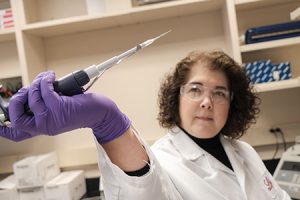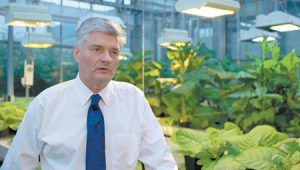IDEM to hike permit fees for first time in decades
The cost of Indiana environmental permits on everything from incinerators to wastewater-treatment plants is just a fraction of what nearby states charge.
The cost of Indiana environmental permits on everything from incinerators to wastewater-treatment plants is just a fraction of what nearby states charge.
One of the project’s partners, Post Acute Medical LLC of Pennsylvania, has been shutting down hospitals in Texas and Wisconsin in recent months.
Prosecutors said Chinese resident Fujie Wang and a person they call John Doe were behind the huge data breach at the Indianapolis-based insurer in 2015, which compromised the information of 78 million people.
The Rand Corp. study, which examined nearly 1,600 hospitals in 25 states, found that Indiana prices are the highest compared with Medicare fees.

Backed by more than $100 million in funding from Indiana companies and foundations, the Indiana Biosciences Research Institute has hired 39 employees and hopes to ramp up to 80 within another three years.
The Indianapolis-based company also announced a deal to cover nearly 4,000 government workers and dependents in Hamilton County, Ohio.
 Endocyte Inc.'s decision two years ago to shelve its own pipeline and look for other opportunities was a difficult call that eventually paid off for investors, its former CEO said Friday at IBJ’s Life Sciences Power Breakfast.
Endocyte Inc.'s decision two years ago to shelve its own pipeline and look for other opportunities was a difficult call that eventually paid off for investors, its former CEO said Friday at IBJ’s Life Sciences Power Breakfast.
Caprice R. Bearden, the company’s former compliance officer, pleaded guilty in November to multiple criminal charges related to the sale of over-potent drugs. She later testified against her boss, who was convicted and awaits sentencing.
This month, Saxton took on an additional position—vice president for business development at Regenstrief Institute, a medical-research organization based in Indianapolis.

The city’s newest park is springing up on the south side of downtown, a district quickly filling up with apartments, offices and retail—and a noticeable shortage of public green space.
The utility had wanted to build the gas-fired plant to replace aging coal-burning units, but regulators said the plan was too risky and inflexible.
The two sides seem to be digging in as a deadline approaches for them to figure out a way to work together after the end of this year.

Long a leader in diabetes and neuroscience drugs, Eli Lilly and Co. is pushing hard and spending record sums to turbocharge its oncology business, potentially a huge growth area.

Dr. Rainer Fischer is giving up the roles of CEO and chief scientific officer, but will continue as senior executive for innovation and discovery.
Nearly 40 states allow patients to get their eyes tested and glasses prescribed online, but Indiana’s 2016 telemedicine law bans such practice here.
The House voted 53-38 Thursday to strip language that would have prohibited the state from approving new power plants for two years, a move widely seen as delaying construction of renewable energy projects.
Paul Elmer, former owner and CEO of Pharmakon Pharmaceuticals in Noblesville, was convicted in federal court of nine counts of adulterating drugs and one count of conspiracy. He was acquitted of an additional count of obstruction of justice.
The company raised about $50 million and had big plans for its product, Redbox-style vending machines in nursing homes that dispensed medicines for patients.
County officials unveiled a mobile health unit that will visit neighborhoods hit hard by hepatitis C and offer health screenings and clean needles in the latest tactic against the opioid epidemic.
Seeking to reduce delays and endless paperwork, Butler’s College of Pharmacy developed a database to help the Indiana Department of Insurance make sure insurers are covering the right drugs.